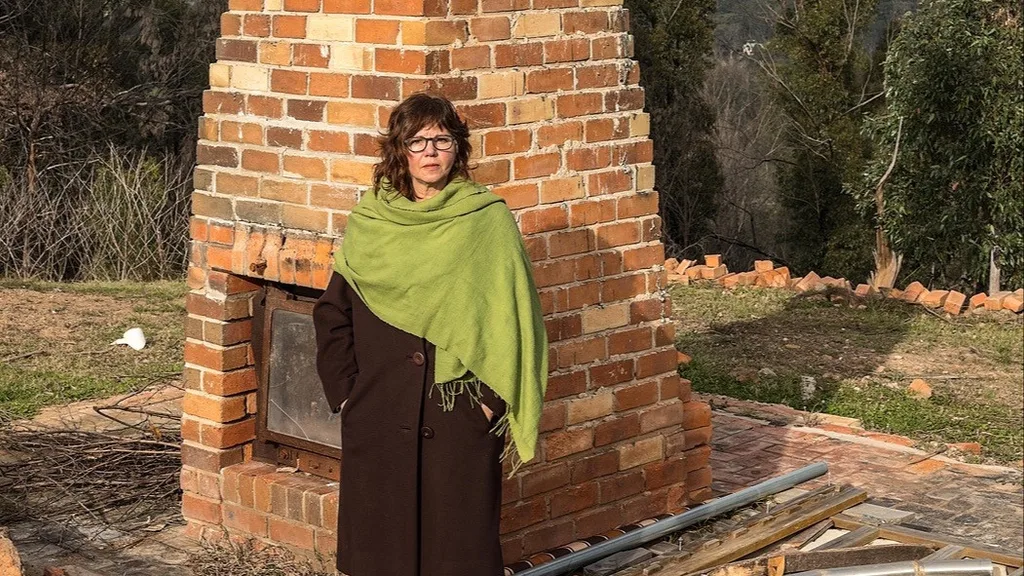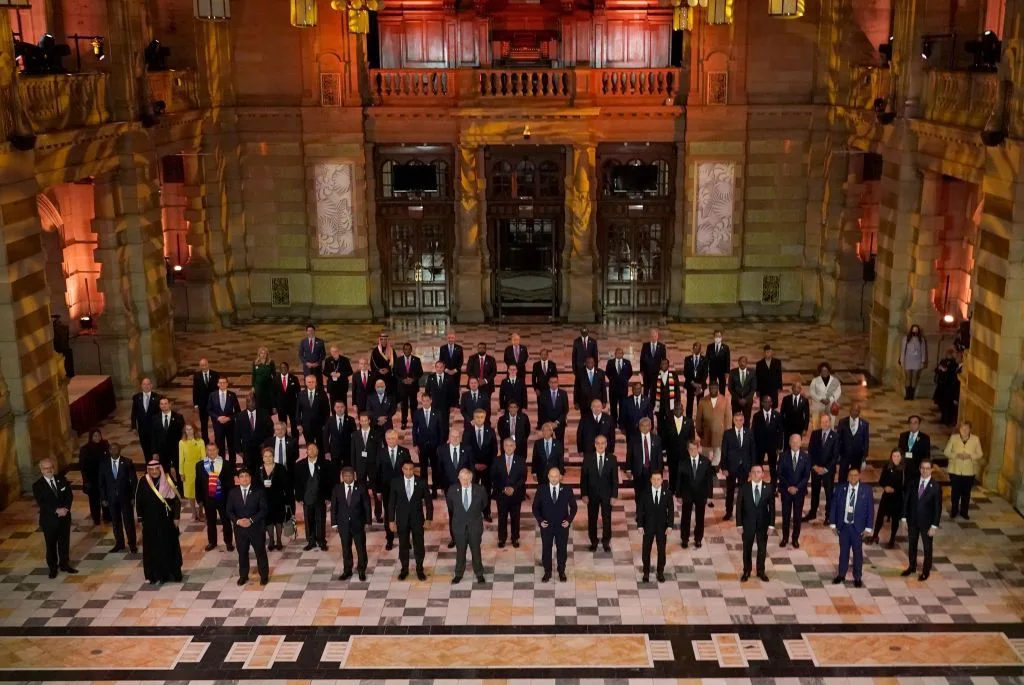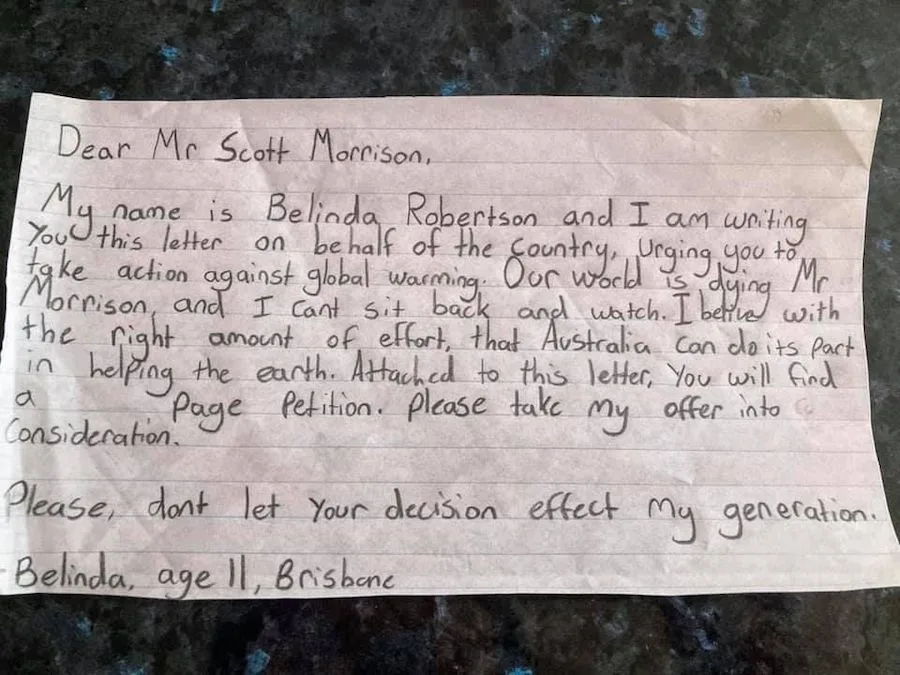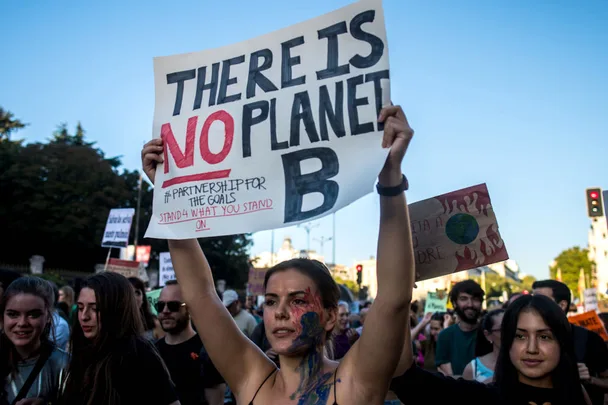“The world as designed by men has destroyed many things. The world should begin thinking like women. If it was designed by a woman, it would end violence against women and children.”
Those were the powerful words of Angelica Ponce, executive director of the Plurinational Authority for Mother Earth in Bolivia. She was speaking at the COP26 delegation in Glasgow, where world leaders and campaigners had spent the day talking about gender equality in terms of climate change.
“We want to be in the corridors of power and take part in decisions at international level to end this struggle of climate justice,” Ponce continued, as reported by The Guardian.
“As Indigenous women, we live day-by-day the cruel reality of climate change in our land.”
It’s not that climate change is sexist. (It’s a phenomenon, not a person.) However, climate change is not gender neutral: it disproportionately affects women and girls, particularly poor women.
A UN report found that 80% of people displaced by climate change are women, while two million women and children die prematurely every single year due to illness caused by indoor air pollution—primarily from smoke produced while cooking with solid fuels.
To give you another example: 70% of the estimated 227,898 people who died in the devastating 2004 Boxing Day tsunami were women, because they were trapped inside their homes while most men were out in the open. (That particular tsunami wasn’t found to be linked to climate change, but global warming could trigger “catastrophic” tsunamis in the future.)
So yes, climate change is a feminist issue. The power structures that remove women’s power – whether that’s owning land or leading a country – are the same ones that will make women pay their unfair share of the price for global warming.
The flip side? Women are also at the forefront of the climate movement. One of those women is Jo Dodds, who almost lost her Bega, NSW home in a 2018 bushfire that destroyed 69 others. That near miss was a wakeup call to the very real impacts of climate change on the Australian community; she’s now president of the Bushfire Survivors for Climate Action.

“We’re demanding better futures for ALL people via just transitions to a post-fossil fuelled world,” Dodds told marie claire via email from Glasgow, where she addressed the COP26 summit.
“You can’t develop this future out of great policy negotiation at the top levels of government without first building the sort of people’s movements at the grassroots that we’re seeing women and girls create.”
Some of those organisations include the School Strike 4 Climate, to the Climate and Health Alliance, to the Australian Parents for Climate Action. It’s a stark contrast to elected officials who hold the capacity for change.
“One of the striking images from COP26 was the photo of all the world leaders who attended, which included just a handful of women,” Climate Council CEO Amanda McKenzie told marie claire.
“In contrast, most of the most effective agitators for change are women, like Greta Thunberg, Jane Goodall, and Christina Figueres (who led the wrangling for the global Paris agreement). I think women often bring a different style of leadership which is about bringing people together, listening, less ego and leading from behind. These skills are crucial in a political environment that has often been plagued by entrenched greed and ideology.”

Let’s be real here: no one is saying men aren’t (or shouldn’t be) involved in fighting climate change. Australian Greens leader Adam Bandt is, naturally, leading the push to transition to renewable energy. Melbourne-based advocate Simon Holmes a Court is one of the most prolific worldwide voices on global warming. And Atlassian co-founder (and billionaire) Mike Cannon-Brookes uses his money and influence not just to push for climate action, but to show the Liberal party in particular that action can happen in lockstep with a booming economy.
But when you look at global warming on a, well, global scale, it’s impossible to separate the most pressing issue of our time with the gender imbalances that define how society operates. Global warming is a feminist issue. Distribute power evenly and you might find a solution that works for all.
I’m going to end this piece by quoting an 11-year-old girl from Brisbane called Belinda, who sent Scott Morrison a petition she’d organised amongst her school mates.
“Our world is dying, Mr Morrison,” she wrote in a letter posted by her dad to LinkedIn, “and I can’t sit back and watch”.

She urged Morrison to take action on climate change, believing that with the right amount of effort”, Australia could do its part.
“Please don’t let your decision affect my generation,” she said.
If only the Prime Minister would listen.










